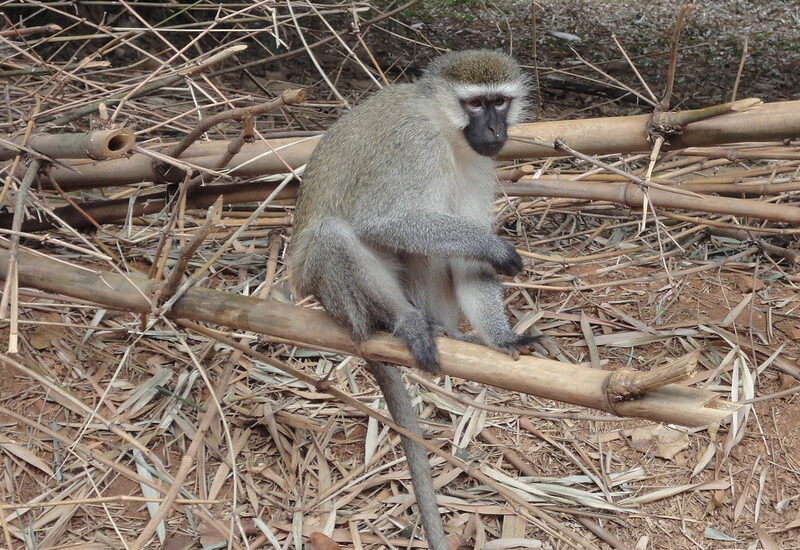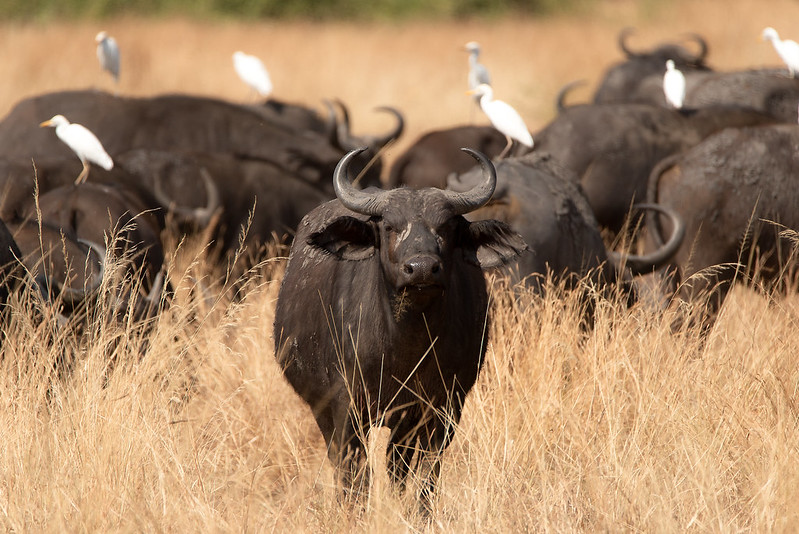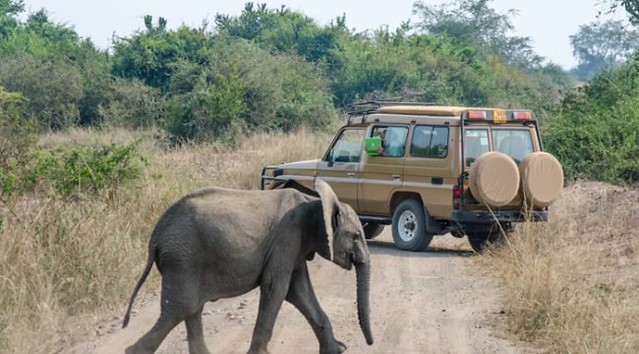Entebbe adventure excursions. Travelers who stop in Entebbe for a day or two often search…
Elephants in Akagera National Park
Elephants in Akagera National Park: Conservation Through Citizen Science Safaris, Elephants are always a remarkable sight on any African safari. Watching these gentle giants roam and feed on the savannah plains is truly unforgettable.
A safari in Africa is a life-changing experience. Today, animal lovers can actively support conservation efforts by participating in citizen science safaris in Rwanda’s renowned Akagera National Park. Due to past poaching and human-wildlife conflict, African elephants have become one of the most endangered species. However, in Akagera National Park, the elephant population is beginning to recover thanks to the efforts of the Akagera Management Company—a partnership between African Parks and the Rwanda Development Board—alongside strong community involvement and sustainable tourism.
A History of Elephants in Akagera National Park
Nearly 20 years ago, the elephant population in Akagera faced near extinction following the devastation caused by the Rwandan genocide. Refugees returning to the area cleared land for farming and grazing, which severely affected wildlife. The park lost its lions, wild dogs, and rhinos, and was overwhelmed by livestock. In 1997, the park’s size was reduced by two-thirds to make room for settlers.
However, in 2010, African Parks and the Rwanda Development Board partnered to restore Akagera. According to JP Karangire, Assistant Manager of Tourism and Marketing, this marked the beginning of Akagera’s transformation into a thriving, ecologically functional park. Today, it is Central Africa’s largest protected wetland and a premier safari destination, home to more than 13,000 animals, including reintroduced lions and rhinos.
The park’s elephants have a unique origin. In 1975, 26 orphaned elephants from a cull in southern Rwanda were relocated to Akagera. Thanks to conservation efforts, their population now stands at approximately 130. Many of these elephants bear scars from snares set during times of high poaching, particularly in the 1990s. An electric fence now helps prevent human-elephant conflict, and thousands of snares have been removed to protect wildlife.
The Akagera Elephant Project
In 2018, Australian conservationist Sharon Matson launched the Akagera Elephant Project in collaboration with the Akagera Management Company. This initiative was the park’s first dedicated research program on elephants. Its goal is to gather detailed data about elephant families, including age, sex, group dynamics, and unique physical identifiers.
The project uses identification techniques developed by the Amboseli Elephant Project, such as analyzing ear shapes, tusk characteristics, and other individual markers. To date, the team has documented two-thirds of the park’s elephants.
A core element of the project is local capacity building. Matson provides training in elephant identification techniques to local guides, park rangers, and university students. This ensures that research continues year-round, supported by individuals from nearby communities.
Citizen Science Safaris: Supporting Conservation Firsthand
Citizen science safaris—such as those offered by Monumental Expeditions and Safaris—play a crucial role in sustaining projects like the Akagera Elephant Project. Guests participate in field research, contribute photographs and observations, and deepen their understanding of conservation efforts on the ground. These safaris help researchers gather more comprehensive data and also raise funds for park operations and local employment.
Tour participants benefit from a more meaningful travel experience by learning directly from conservationists and regional experts. While Akagera may not have the same animal densities as the Serengeti or Maasai Mara, it offers a different kind of safari: one rooted in purpose, education, and hands-on involvement.
Safari Itinerary and Accommodations
The journey begins in Kigali, followed by three days of elephant-focused fieldwork in southern Akagera, then three more days of conservation activities in northern Akagera. Guests also enjoy gorilla trekking in Volcanoes National Park and optional activities such as walking with rangers, visiting nearby communities, and taking boat rides at sunset.
Accommodations include:
Heaven Boutique Hotel in Kigali
Ruzizi Tented Lodge in Akagera, nestled by the lake and surrounded by wildlife
Magashi Camp by Wilderness Safaris in northern Akagera
Sabyinyo Silverback Lodge, a community-owned lodge near Volcanoes National Park
Matson carefully selects lodges that prioritize conservation, local community support, and sustainability. The tour collaborates with respected African safari companies like Asilia Africa, Natural Selection, and Wilderness Safaris.
Conclusion
Thanks to initiatives like the Akagera Elephant Project, travelers can enjoy the beauty of Africa while contributing directly to wildlife conservation. Safaris offered by Monumental Expeditions and Safaris provide a unique opportunity to engage with nature in a meaningful way—by supporting long-term conservation and helping secure a future for elephants in Akagera National Park.


